News Archive 2016
School news from 2016.
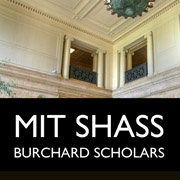
35 exceptional MIT students named Burchard Scholars for 2017
The School of Humanities, Arts, and Social Sciences is pleased to name 35 exceptional MIT undergraduates as Burchard Scholars for 2017. The award honors sophomores and juniors who demonstrate academic excellence in the humanities, arts, and social sciences, as well as in science and engineering.
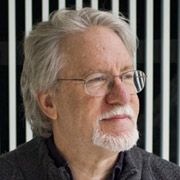
CORE
Edward Schiappa receives the Charles H. Woolbert Research Award
This "test of time" award from the National Communication Association recognizes work that has stimulated new conceptualizations of communication phenomena.
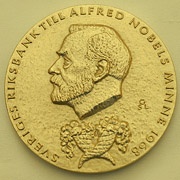
Video + Stories for the 2016 Nobel Prize in Economic Sciences
Bengt Robert Holmström is a winner of the 2016 Sveriges Riksbank Prize in Economic Sciences in Memory of Alfred Nobel, for his work on contract theory. He shares the prize wtih Oliver Hart, of Harvard University. This page consolidates all MIT stories about the prize, and videos from Nobel Week, including Holmström's lecture, and the Nobel Prize ceremony. Holmström is the Paul A. Samuelson Professor of Economics in the MIT School of Humanities, Arts, and Social Sciences, where he was head of the Economics Department from 2003-2006. He also holds a joint appointment in the MIT Sloan School of Management.

3 Questions with philosopher Kieran Setiya
How philosophy helps us address climate change
"Almost anyone engaged with global issues of human well-being, the distribution of resources, or the future of society is doing moral philosophy Even the most technocratic assessment of costs and benefits makes assumptions about the value of human life and the demands of justice....Making our ethics more explicit, being self-conscious about our principles and premises, improves our moral thinking. This is particularly true when the questions are ones of public policy."
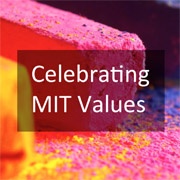
Celebrating MIT Values
Students, faculty, and staff gathered on Nov 17 for "Uniting through Voice and Song," a program of music from many traditions, interwoven with reflections from faculty and students on the enduring MIT values.

HEALTH OF THE PLANET | CITIZENSHIP
At forum, MIT community tackles tough ethical questions of climate change
Why is it so hard for human beings to address climate change? What can motivate effective action?
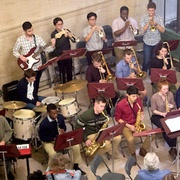
21ST CENTURY CITIZENSHIP
No Walls: The making of a socio-political statement in music
Commentary by Mark Sumner Harvey

Starr Forum
The Struggle Against Terrorism: Lessons Learned and Next Steps
Dr. Sarah Sewall is a longtime expert on civilian security and human rights. Dr. Sewall was sworn in as Under Secretary for Civilian Security, Democracy, and Human Rights on February 20, 2014.
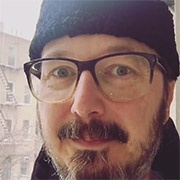
21ST CENTURY CITIZENSHIP
An Evening with John Hodgman
Humorist John Hodgman and MIT’s Seth Mnookin discussed the aftermath of the 2016 election and where to go from here.
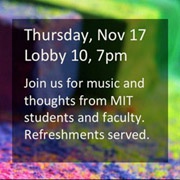
Uniting through Voice and Song
In a time of political change, we celebrate the enduring values that unite us at MIT.

Scene at MIT: Stata-o'-Lantern
MIT Linguistics has celebrated the Halloween season with an annual pumpkin carving party since 2010, the year that Michael Yoshitaka Erlewine PhD ’14 dazzled his fellow scholars with this Stata-o’-lantern, created in the likeness of Building 32, MIT's Ray and Maria Stata Center, designed by architect Frank Gehry.
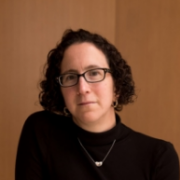
HEALTH ECONOMICS
Study: With Medicaid, ER visits remain high for two years
People enrolled in Medicaid significantly increase their emergency room visits for at least two years after they first sign up, according to a new study co-authored by an MIT economist. The finding will likely surprise those health care experts who have projected that people would make fewer ER visits after acquiring health insurance.
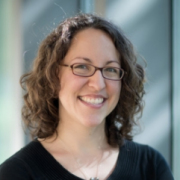
HEALTH ECONOMICS
Making a splash in health care economics
MIT economist Heidi Williams has developed a distinctive method of trying to answer the questions that intrigue her. For each new study, she essentially builds an all-new data set from the ground up, linking scientific records about medical research with economic and financial records.
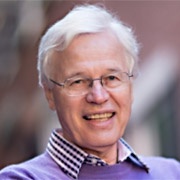
Economist Bengt Holmström’s Nobel Prize win delights MIT colleagues
Bengt Holmström, the Paul A. Samuelson Professor of Economics at MIT, won a share of the 2016 Nobel Memorial Prize in Economic Sciences with Oliver Hart, a professor and economist at Harvard University. Holmström, a faculty member in the Department of Economics in MIT's School of Humanities, Arts, and Social Sciences (SHASS), holds a joint appointment in the MIT Sloan School of Management. Calling his work “pathbreaking,” Holmström’s colleagues laud the decision by the Royal Swedish Academy of Sciences.
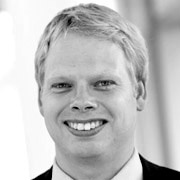
3 Questions with political scientist Richard Nielsen
How political science helps combat terrorism
Richard Nielsen is an assistant professor of political science at MIT SHASS who writes on international law, the political economy of human rights, political violence, and political methodology. His current book project, Deadly Clerics, explores why some Muslim clerics adopt the ideology of militant Jihad while most do not.

HEALTH OF THE PLANET
What is Wild: 3Q with Historian Ritvo
Scientists, social scientists, and humanists explored the question during a workshop convened at MIT by Harriet Ritvo, Arthur J. Conner Professor of History at MIT, and Sally Shuttleworth, professor of English literature at the University of Oxford. The "Call of the Wild" workshop featured presentations spanning disciplines from biology to astrophysics to history and literature.
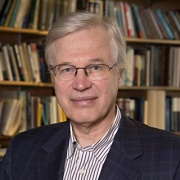
BASIC RESEARCH
Professor Bengt Holmström wins 2016 Nobel Prize in Economics
The 2016 Nobel Prize in Economic Sciences has been awarded to MIT's Bengt Holmström and Harvard's Olvier Hart for their contributions to contract theory. Holmström is the Paul A. Samuelson Professor of Economics in the MIT SHASS Department of Economics, with a joint appointment in the Sloan School.
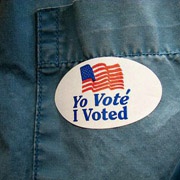
SOCIAL INNOVATION | 21st C. CITIZENSHIP
How healthy is the U.S. voting system?
Professor Charles Stewart III explains why the U.S. electoral system is strong and how MIT research is making the voting process even more seamless. This fall Stewart is leading a nationwide research project: on Election Day 2016, some 800 students from more than 25 universities, including MIT, will be collecting data at polling places across the country, as part of the "Polling Place of the Future" project to help further improve the nation's electoral process.
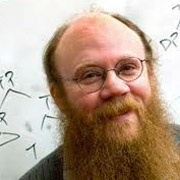
BASIC RESEARCH
Norvin Richards explores how our voices shape the rules of grammar
Linguists who study syntax have catalogued myriad distinguishing rules and patterns among world languages — without necessarily explaining why such differences exist. But now Richards has a new explanation, detailed in his book, Contiguity Theory, recently published by the MIT Press.
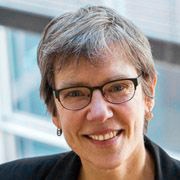
Election Insights 2106: Sally Haslanger on Gender Bias
"As long as 'being presidential' and 'looking presidential' are about being and looking masculine, we will be unable to address what is ripping us apart as a country. Arguably, the androcentrism of our political system...is dangerous for the well-being of our republic."
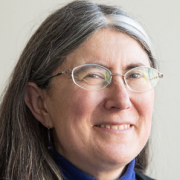
21ST CENTURY CITIZENSHIP
Election Insights 2016: Elizabeth Wood on the Putinization of Politics
"The casualty of the 'Putinization' of American elections is the creation of a Reality TV style of campaigning based on machismo, a loss of authenticity, and a failure to acknowledge the importance of institutions, laws, and solid economic policies designed to increase the general welfare of the nation."

Election Insights 2016: Edward Schiappa on the Campaign Discourse
"The U.S. has a history of unseemly bursts of crude and deceitful campaign rhetoric, beginning with outrageous slander slung between John Adams and Thomas Jefferson in 1800. Nonetheless, the sense that this year’s election rhetoric is different than usual is well founded."
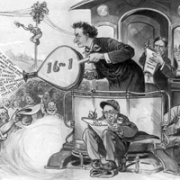
Election Insights 2016: Heather Hendershot on Political Rhetoric and Outsider Candidates
"As a historian of American political media, it is always my instinct to ask how we can use the past to understand the present, and, from this perspective it is useful to back up and consider how the rhetorical strategies of outsider candidates in earlier elections may help to put the Trump-Clinton election into context."

Election Insights 2016: Charles Stewart III on Election Integrity
"The current election administration system is far from perfect and continues to stand in need of improvement. However, intimations that it is fundamentally corrupt and rigged against one candidate or the other are not only false, but needlessly undermine the legitimacy of those who are elected to office." — Charles Stewart, Kenan Sahin Distinguished Professor of Political Science
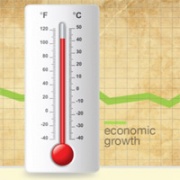
Election Insights 2016: Benjamin Olken on the Economic Impacts of Climate Change
"The increase in average temperature translates into many more extremely hot days. These matter, even in the US: researchers have found that the increased number of extremely hot days lead to lower agricultural yields, lower economic activity in industries exposed to outdoor temperatures, such as construction and mining, and even to increased mortality."
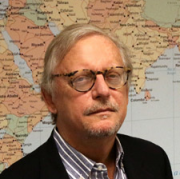
MAKING A JUST SOCIETY
Election Insights 2016 | John Tirman on Immigration
"Negative attitudes toward immigrants have many roots. The economy and 'job stealing' have often ranked high on the list of grievances, but several studies — including one just released by the National Academy of Sciences — demonstrate that immigrants of all kinds boost the U.S. economy overall and hurt few if any native-born Americans. So, what really mobilizes anti-immigrant attitudes?"
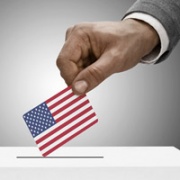
MAKING A JUST SOCIETY
Election Insights: Ariel White on Racial Attitudes and Bias
"There's evidence that government is less responsive to people of color. In my work with Julie Faller and Noah Nathan, we have found that election officials are less likely to respond to informational questions about voting eligibility when they're sent from Hispanic-sounding names than when they're sent by non-Hispanic white names. These officials didn't respond rudely to Hispanic questioners; they simply didn't write back as often, and didn't answer their questions as well."

Election Insights 2016: Andrea Campbell on Health Care
"The 2016 election offers voters a stark contrast on health care. Who should get health insurance coverage in the future, and how should it be funded? The stakes are large — both for the nation...and for individuals."
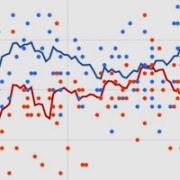
Election Insights 2016: Adam Berinsky on Electoral Polls
Don’t be distracted by any single poll. The media tend to highlight polls that are surprising — those that paint a different picture of the state of the race than the pack of the others. Resist this tendency."
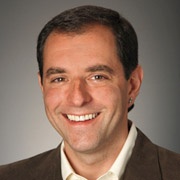
21ST CENTURY CITIZENSHIP | RESEARCH
Election Insights 2016: David Autor on Jobs, Economic Security
"The Earned Income Tax Credit (EITC), enacted in 1975 and enlarged by both Republican and Democratic administrations, is among the nation’s most significant tools for reducing poverty and encouraging people to enter the workforce. One of the most promising policies for assisting non-college workers is expanding the EITC to cover childless workers and non-custodial parents."
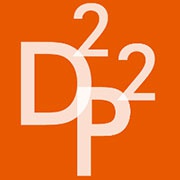
SOCIAL INNOVATION | CITIZENSHIP
J-PAL and MIT Economics launch D2P2 Lecture Series
With their “D2P2: Data. Decisions. Public Policy.” lecture series, J-PAL and MIT Economics aim to increase awareness of their work on campus and in Greater Boston.
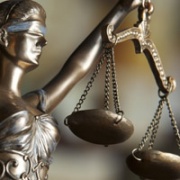
CRIMINAL JUSTICE REFORM
Election Insights 2016: Malick Ghachem on Criminal Justice Reform
"Criminal law is no longer (if it ever was) only about 'criminals,' or even about 'crime.' It has become a matter of everyday life for far too many people."
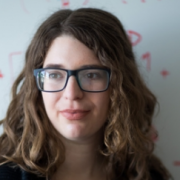
An economist delves into charter schools
PhD student Elizabeth Setren brings data to bear on questions about charter schools and local education policy.
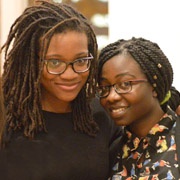
BUILDING COMMUNITY
My Sister's Keeper builds community for black women at MIT
"Being a black woman at MIT is a very particular experience. To compare that with others going through that is very powerful and uplifting," said Itoro Atakpa, a senior in mechanical engineering. My Sister's Keeper supports black women students with social, professional, and mentoring relationships.
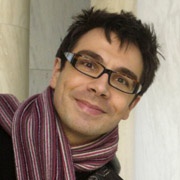
CORE
Bruno Perreau named to the French l’Ordre des Palmes académiques
Bruno Perreau, Cynthia L. Reed Professor of French Studies, has been selected as a member of the prestigious French Academic Palms (l’Ordre des Palmes académiques), the highest distinction for French professors, given in recognition of exemplary academic contributions to French education and culture.

BASIC RESEARCH
Via IDSS, Christia and Jadbabaie collaborate on study of sociopolitical change
With the new Institute for Data, Systems, and Society (IDSS), MIT researchers in the social sciences have an official research platform for collaborating with peers in engineering and the sciences. In this project, social scientist Fotini Christia and civil engineer Ali Jadbabaie join forces to study the evolution of cultural norms and the dynamics of sociopolitical change.
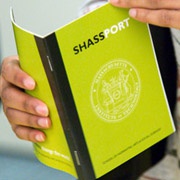
EDUCATION: STEM + SHASS = MIT
Hundreds of MIT students take the 2016 TOUR de SHASS
At MIT, every undergraduate receives a balanced STEM + SHASS education — with 25% of required classes in the humanities, arts, and social sciences. At the annual TOUR de SHASS academic fair, MIT students meet SHASS faculty, and discover the great diversity of classes in MIT's humanities, arts, and social sciences fields.

Nine new faculty join MIT SHASS
Dean Melissa Nobles and the School of Humanities, Arts, and Social Sciences are very pleased to welcome the newest members of the MIT SHASS faculty. They come to us with diverse backgrounds and vast knowledge in their areas of research, which include counterfactual economic models, philosophy of mind, educational gaming, and global media.
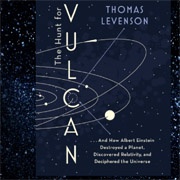
CORE
Levenson's Hunt for Vulcan is a finalist for Royal Society Science Book Prize
The most recent book by science writing professor Thomas Levenson, The Hunt for Vulcan, has been short-listed for the 2016 Royal Society Insight Investment Science Book Prize, called "the Nobel Prize of science writing" by 2016 judge Bill Bryson.

SOCIAL INNOVATION
The Safety Trap: Lack of Secure Investments is Hindering Growth Globally
After the financial-sector crisis in 2007 and 2008, a large portion of investments people had considered safe were suddenly understood to be risky. And yet, the ensuing flight to safe assets, such as U.S. debt, has come with its own cost.

CORE + EDUCATION
New Faculty, Fall 2016
The School of Humanities, Arts, and Social Sciences is very pleased to present the newest members of the MIT SHASS faculty. They come to us with diverse backgrounds and vast knowledge in their areas of research, which include the effects of public policy on labor markets; the relationships between social inequality and technological use; stochastic choice; affect, environment, and subjectivity in media; ethical theory; and voting rights.
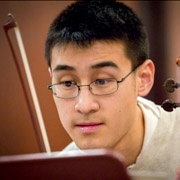
ARTS INNOVATION
Gallery | Photographs of MIT's Music Program
"Many scientists and engineers have a deep affinity for music. I suspect it’s because both science and engineering are rooted in trying to comprehend deep and hidden structures. The appeal of uncovering those hidden structures is part of what draws many who love science and engineering to music as well.”
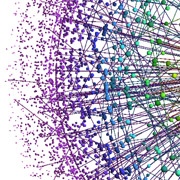
SOCIAL INNOVATION
Education for sociotechnical collaboration
A commentary by Daniel Hastings, the Cecil and Ida Green Education Professor of Engineering Systems and Aeronautics and Astronautics at MIT. To meet today's complex challenges, we need scientists and engineers who have an understanding of social, economic, and political realities and proceses, and equally, planners and policy makers with a solid knowledge of science and technology. What kind of education is needed for such well-informed collaborators?
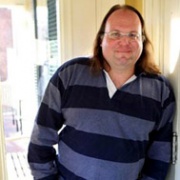
SOCIAL INNOVATION
How can we design sociotechnical approaches for solving the social, economic, and political dimensions of global issues?
Professor Ethan Zuckerman asks, "Is it possible to get beyond both a naïve belief that the latest technology will solve social problems and a reaction that rubbishes any attempt to offer novel technical solutions as inappropriate, insensitive and misguided?"
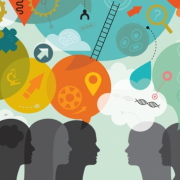
SOCIAL INNOVATION
Why do women leave engineering?
Study co-authored by Susan Silbey, Professor of Anthropology: Women who go to college intending to become engineers stay in the profession less often than men. Why is this? While multiple reasons have been offered in the past, a new study develops a novel explanation: The negative group dynamics women tend to experience during team-based work projects makes the profession less appealing.
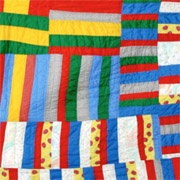
Honoring Juneteenth Independence Day
The earliest known public celebration of the end of slavery in the U.S. took place on June 19, 1865, in Galveston, Texas. Known as Juneteenth Independence Day, the event is now observed annually across the country as a day of celebration, reflection, remembrance of ancestors — and dedication to helping the nation fulfill its ideals.

TEACHING AND LEARNING
MIT Chapter of the Phi Beta Kappa Society inducts 72 graduating seniors
The Phi Beta Kappa Society, the nation’s oldest academic honor society, held its MIT induction ceremony on Thursday, June 2, admitting 72 graduating seniors into the MIT chapter, Xi of Massachusetts.
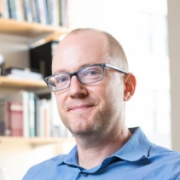
SOCIAL INNOVATION
Political scientist Evan Lieberman studies ethnic identity and African politics
“A big strand in my work has been to think about the important ways in which social identity, especially racial and ethnic identities, become really important in thinking about policies and justice in distributive issues,” MIT political scientist Evan Lieberman says.
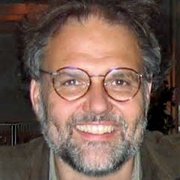
TEACHING AND LEARNING
Kurt Fendt of CMS/W receives MIT Teaching with Digital Technology Awards
Co-sponsored by the Office of Digital Learning (ODL), the Dean of Undergraduate Education (DUE) and the Office of the Dean for Graduate Education (ODGE), the student-nominated awards recognize faculty and instructors who have effectively leveraged digital technology to improve teaching and learning at MIT.

CORE
9 SHASS faculty members awarded named professorships
MIT's School of Humanities, Arts, and Social Sciences is very pleased to announce that nine members of its faculty have been awarded named professorships. These honored positions afford the faculty member additional support to pursue their research and develop their careers.
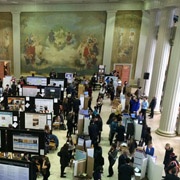
MIT students produce second annual INSPIRE event
Founded and organized by MIT undergraduates, INSPIRE is the first ever national high school research competition in the humanities, arts, and social sciences. Another MIT first!
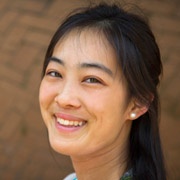
MEET THE MIT BILINGUALS
Cara Lai '16 cites MIT Literature as key to her preparation for medical practice.
Lai, who graduates with degrees in both Literature and Mechanical Engineering, is en route to Stanford University's School of Medicine. In this story she explains how MIT Literature provided her with tools critical to the practice of medicine.
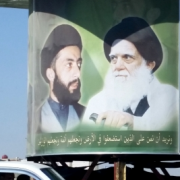
CORE
From Babylon to Baudelaire and back
“I fought it for the longest time,” says MIT Poltiical Science PhD candidate Marsin Alshamary. “But it’s always been in the background: My entire life story’s about politics.”
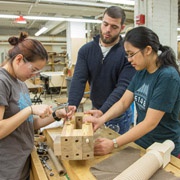
TEACHING AND LEARNING
In the MIT History Workshop — where building a printing press illuminates human systems
A group of MIT students briefly put away their cell phones this spring to concentrate on a much older information storage and retrieval device: the book. As students built a handset printing press — the kind of press on which the documents of the Renaissance, the Reformation, and the Scientific Revolution were printed — they also gained insight into human systems.

BASIC RESEARCH
Why children confuse "and" with "or"
A study co-authored by MIT linguists concludes that children deploy a more sophisticated mode of logical analysis than many experts have previously realized.

Primary Factors
Interview with MIT political scientists Charles Stewart III and Devin Caughey on the 2016 Presidential primaries, and how the U.S. primary system developed.
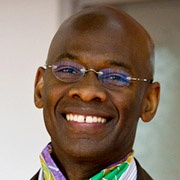
TEACHING AND LEARNING
Remarks by Michel DeGraff, upon receiving the 2016 MIT Martin Luther King Jr. Leadership Award
Michel DeGraff, MIT-SHASS Professor of Linguistics, is a founding member of Haiti's newly created Haitian Creole Academy (Akademi Kreyòl Ayisyen) and Director of the MIT-Haiti Initiative.
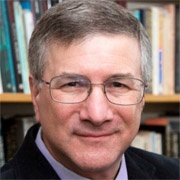
CORE | TEACHING AND LEARNING
3 Questions: Jeffrey Ravel on bringing data to cultural history
Centuries from now, will anyone remember the hit Broadway show “Hamilton?” Will they know how popular it was? As it happens, historians do know a great deal about Enlightenment-era French theater, and they continue to learn more — thanks in part to the Comédie Française Registers Project (CFRP), an ongoing effort led by Jeffrey Ravel, head of the MIT History faculty.

HEALTH ECONOMICS | MIGRATION AND NUTRITION
Migrants pay more for their home region’s cuisine, even when on the edge of malnutrition
A new study from MIT economist David Atkin reveals that migrants who hang on to their old cuisines often pay more to eat. In turn, poor migrants on tight budgets must reduce the amount of calories they can consume, sometimes pushing them to the cusp of malnutrition.
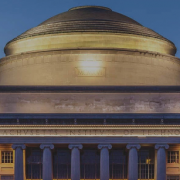
Knight Science Journalism Program Selects 2016-17 Fellows
The Knight Science Journalism Program at MIT, the premier global fellowship program for journalists covering science, technology, health and the environment, is proud to announce that ten journalists, representing five countries, have been selected to join the program’s 34th class of fellows.
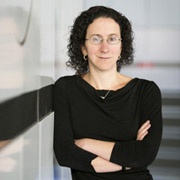
ECONOMIC IMPACTS | HEALTHCARE POLICY
Interview with Amy Finkelstein
Federal Reserve Bank Interview Finkelstein's gift for combining data and theory has revealed subtleties of economic behavior that long eluded the profession. And she’s applied this talent to improve understanding and policy in health insurance — one of the most complex, expensive and contentious areas of public discourse.

CORE
2016 SHASS Levitan Awards for Excellence in Teaching
Dean Nobles has announced the recipients of the 2016 James A. and Ruth Levitan Awards for Excellence in Teaching. Warmest congratulations to these nine educators and colleagues, who represent the very best academic leadership in the School.

RESEARCH TO POLICY | HEALTH
How Medicaid affects adult health
Study: Having health insurance helps lower-income Americans avoid depression, diabetes, and catastrophic financial shocks related to health care.
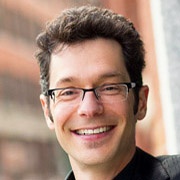
ARTS INNOVATION: MUSIC + TECH
Harmonix co-founder Eran Egozy returns to MIT as Professor of the Practice of Music Technology
"Music exercises the artistic part of your brain, which encourages creativity, and that creativity can be applied to engineering and science," says Egozy, founder of Harmonix, one of the pre-eminent game development studios. "But students should take classes in the humanities and arts simply because they are rich and wonderful subjects. And ultimately, the truly great things happen in the world when people pursue the work they love."
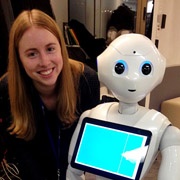
INTERNATIONAL EDUCATION
Around the World | Snapshots from MISTI
A slide show of photos and reflections from students in MIT's flagship international education program
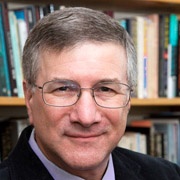
TEACHING AND LEARNING
Ravel awarded grant from National Park Service for Visualizing Maritime History project
The National Park Service, with the Maritime Administration, announced the award of a $50,000 grant in support of the Visualizing Maritime History Project, led by Jeffrey Ravel, MIT SHASS Professor of History.
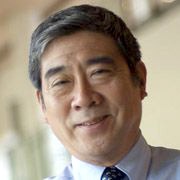
Q&A with political scientist Ken Oye
On the art of socio-technical collaboration
Over the course of 26 years at MIT, political scientist Kenneth Oye has discovered that collaborating with technologists is a very effective way to inform good policy on the issues he cares most about — from climate change to synthetic biology.

SOCIAL INNOVATION | CITIZENSHIP
Christine Walley and Chris Boebel on the Exit Zero Project
The Exit Zero Project, founded by Christine Walley and Chris Boebel, is a transmedia effort to tell the story of the traumatic effect of deindustrialization on Southeast Chicago. The three components of the project — book, documentary film, and in-progress interactive website — use family stories from the once-thriving steel mill communities of Southeast Chicago to consider the enduring impact of the loss of heavy industry and its role in widening class inequalities in the United States.
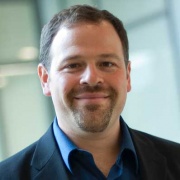
Adam Berinsky wins 2016 Guggenheim Fellowship
Adam Berinsky, MIT-SHASS Professor of Political Science, has been awarded a 2016 Guggenheim Fellowship, a mid-career award that recognizes scholars and artists for their exceptional work.
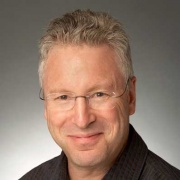
ARTS INNOVATION | SCIENCE WRITING
Thomas Levenson wins 2016 Guggenheim Fellowship
Thomas Levenson, MIT SHASS Professor of Science Writing and Director of the Graduate Program in Science Writing, has been awarded a 2016 Guggenheim Fellowship, a mid-career award that recognizes scholars and artists for their exceptional work.

SOCIAL INNOVATION
Christine Walley and Chris Boebel screen "Exit Zero" at MIT
"Exit Zero, An Industrial Family Story," is a film by by Christine Walley, MIT Associate Professor of Anthropology, and Chris Boebel, Manager of Multimedia Development, in the MIT Office of Digital Learning. The screening takes place on Monday, April 25, in the Bartos Theater, E15-070. Melissa Nobles, Kenan Sahin Dean, MIT School of Humanities, Arts, and Social Sciences, will give an introduction. A reception and discussion with the filmmakers and David Autor, Professor of Economics, will follow.
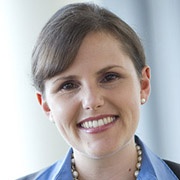
Regina Bateson wins 2016 Outstanding UROP Faculty Mentor Award
MIT political scientist Regina Bateson received the Institute-wide award for the high quality of her mentorship, supervision, and support; her availability to students; her guidance in research; and for her overall commitment to undergraduate research.

HEALTH ECONOMICS
New study shows rich, poor have huge mortality gap in U.S.
Poverty in the U.S. is often associated with deprivation, in areas including housing, employment, and education. Now a study co-authored by two MIT researchers has shown, in unprecedented geographic detail, another stark reality: Poor people live shorter lives, too.
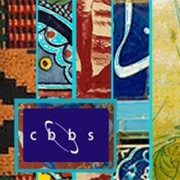
Global Studies and Languages announce winners of the 2016 Isabelle de Courtivron Prize
Awarded by MIT's Center for Bilingual/Bicultural Studies, the prize recognizes “student writing on topics related to immigrant, diaspora, bicultural, bilingual, and/or multi-racial experiences.” Pratyusha Kalluri was awarded First Prize for “Projection,” a futuristic story that raises questions about conformity, freedom, and surveillance. Aneesh Anand was awarded Second Prize for “Bhaasha,” a poetic exploration of his identity and an engaging, complex portrait of his family.
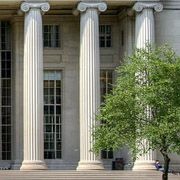
CORE | BASIC RESEARCH
MIT named No.1 university worldwide for Economics and Linguistics
MIT has been named the top university in the world for both Economics and Linguistics in the latest subject rankings from QS World University Rankings. This is the second consecutive year the MIT-SHASS Economics has topped the QS rankings, and the third consecutive year for MIT-SHASS Linguistics.
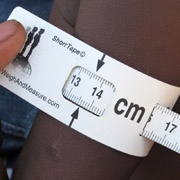
GLOBAL HEALTH AND POVERTY ALLEVIATION
A Sampler of Health Sector projects
Abdul Latif Jameel Poverty Action Lab at MIT
J-PAL’s Health sector aims to encourage health-promoting behaviors and improve the delivery of health care services, as well as to better understand the impact of health care on reducing poverty.
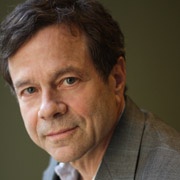
Alan Lightman receives Distinguished Artist Award from the St. Botolph Club Foundation
The first MIT professor to receive a joint appointment in the sciences and the humanities, Lightman currently serves as Professor of the Practice of the Humanities.
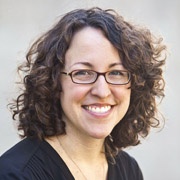
3 Questions with economist Heidi Williams
On the economics of healthcare innovation
MIT economist, and 2015 MacArthur "genius grant" recipient, discusses how updated policies and tweaks to the R&D pipeline could create more drugs for prevention, and for treating cancers at earlier stages.

HEALTH OF THE PLANET
Power play
MIT-SHASS economist Daron Acemoglu and three colleagues present a uniquely detailed model of the dynamics of innovation in the energy industry. In so doing, they indicate how supporting clean energy R&D, not just a carbon tax, might be the best way to help clean energy technologies compete with traditional forms of energy.
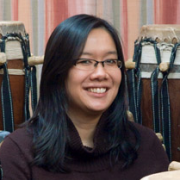
CORE
Patricia Tang named a MacVicar Faculty Fellow
“It is a tremendous honor to be selected as a MacVicar Faculty Fellow. I am truly humbled," said Tang. "As an ethnomusicologist, I love many aspects of my job, but there is nothing more gratifying than sharing my passion for African music with MIT students, and giving them tools to better understand music and its broader cultural contexts."
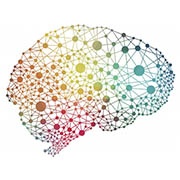
SOCIAL INNOVATION
It's all in our heads
Political science PhD student Marika Landau-Wells is using psychology and neuroscience to better understand political behavior.
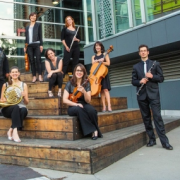
ARTS INNOVATION | PERFORMANCE + TECH
3Q: A World-Premiere Concert Where the Audience Helps Play
MIT’s Eran Egozy discusses “12,” a chamber music debut with smartphone-driven percussion.

BASIC RESEARCH
Trading places
Economists take a new look at the evidence that the U.S. has lost millions of jobs to China.
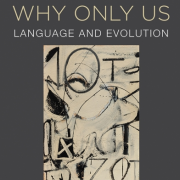
BASIC RESEARCH
Code of the humans
New book by Noam Chomsky and Robert Berwick explores how people acquired unique language skills.
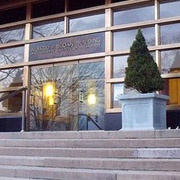
CORE | BUILDINGS
MIT celebrates dedication of the Morris and Sophie Chang Building
The Morris and Sophie Chang Building, also known as Building E52, was formally dedicated on March 3, 2016. Morris Chang, SB ’52, SM ’53, ME ’55, and his wife Sophie, provided a gift that allowed for the building’s restoration and renovation. The Deco-era building now houses the MIT Department of Economics, MIT Sloan offices, and an expanded conference center.
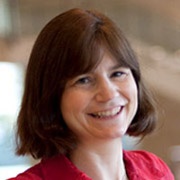
HEALTH CARE | EQUITY
3 Questions with political scientist Andrea Campbell
Healthcare is both a political and a technical issue
"Any initiative to address health and health care goals must wrestle with and address the enormous disparities that exist in health coverage, access, and outcomes across racial and income groups in the United States. It’s as if poor or black Americans are living in a different country, and in terms of poverty, health insurance, and health care access, effectively they are. This is a political and social problem as much as a technical one."

RESEARCH TO POLICY: ENVIRONMENT + HEALTH
The high value of water
A study by MIT economist Esther Duflo finds evidence that people willing to pay more for running water report much higher levels of happiness when they have it.

RESEARCH TO POLICY: HEALTHCARE
Caught in the social safety net
Andrea Campbell gives a firsthand perspective on the effects of means-tested social insurance programs. The single biggest flaw with means-testing, in Campbell’s view, is that the income limits and other restrictions can make it harder for people to break free of social insurance programs.
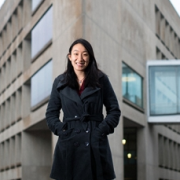
CORE | BASIC RESEARCH
MIT senior takes on double major in brain and cognitive sciences plus theater arts
Abra Shen pursues medicine and theater, and someday hopes to combine the two.
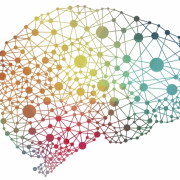
HUMAN FACTOR + BASIC RESEARCH
It's all in our heads
Political science PhD student Marika Landau-Wells is using psychology and neuroscience to better understand political behavior.

SOCIAL INNOVATION | BUSINESS ECOSYSTEMS
Entrepreneurs returning to Africa find great promise, many challenges
Whatever brings entrepreneurs back to Africa, plenty of challenges arise once they are there, from re-acclimating after time away, to breaking down gender stereotypes in business. And there often remains the hard work of building business networks, communities, and innovation ecosystems.

Happy Lunar New Year and Spring Festival | 2016
Sampler of Asian and Asian Diaspora research, courses, and programs at MIT-SHASS
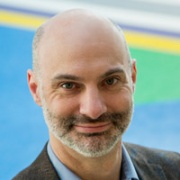
Philosopher Agustín Rayo named Associate Dean of MIT-SHASS
Agustín Rayo PhD ‘01, a professor of philosophy with deep roots in the MIT community, has been named associate dean for the School of Humanities, Arts, and Social Sciences. Rayo’s sense of connection to MIT began the moment he arrived on campus. “MIT changed my life,” he says. “I felt that it was where nerds like me belonged.”

CLIMATE + HUMAN HEALTH
MIT economics students testing projects to reduce pollution in India
In India, industrial development and rapid urbanization have far outpaced efforts to protect the environment, resulting in levels of air and water pollution that pose major threats to human health. Working with the Tata Center, two MIT-SHASS economics doctoral students are addressing this challenge by generating incentives for polluters to change their ways.
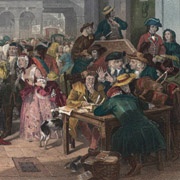
BASIC RESEARCH: HISTORY OF SCIENCE
Thomas Levenson receives the 2016 Levitan Prize in the Humanities
Levenson, professor of science writing and director of MIT’s Graduate Program in Science Writing, has been awarded the $30,000 research grant, which will support his investigation into the economic, cultural, and scientific history of an 18th century financial crisis known as the South Sea Bubble.
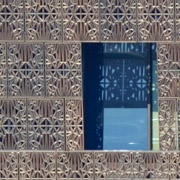
BLACKHISTORY365
Sampler: MIT research and education in African American and African Diaspora Studies
Courses, books, classes, programs, interviews, projects
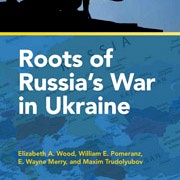
BASIC RESEARCH
Elizabeth Wood: The Roots of the Ukraine Crisis
In February 2014, Russian troops rolled into Crimea, the garden spot of Ukraine, and seized control, shocking the international community. MIT Professor Elizabeth A. Wood’s new book asks why Russia annexed this peninsula, plumbing the depths of history to explain Russia’s current posture on the world stage.
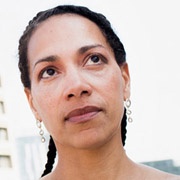
Q&A with anthropologist Erica Caple James
On the role of medical humanities in health outcomes
As a specialist in how culture and behavior influence illness, treatments, and health outcomes, James researches how to leverage innovations in health-care and medical research to make care affordable and universally available.
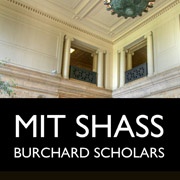
TEACHING AND LEARNING
35 Burchard Scholars announced for 2016
The award honors sophomores and juniors who demonstrate academic excellence in the humanities, arts, and social sciences, as well as in science and engineering. “The Burchard scholars are some of MIT’s liveliest undergraduates,” says Margery Resnick, professor of literature and director of the Burchard Scholars Program. “Selection is extremely competitive, and the students chosen are unafraid to wrestle with new ideas.”

ARTS INNOVATION
The Well-Versed Institute: Poetry at MIT
“I would be a tolerable Mathematician,” wrote the Romantic poet Samuel Taylor Coleridge in 1796. More than two centuries later, MIT students are proving that mathematicians — not to mention engineers, programmers, physicists, economists, architects, and biologists — make more than tolerable poets as well.